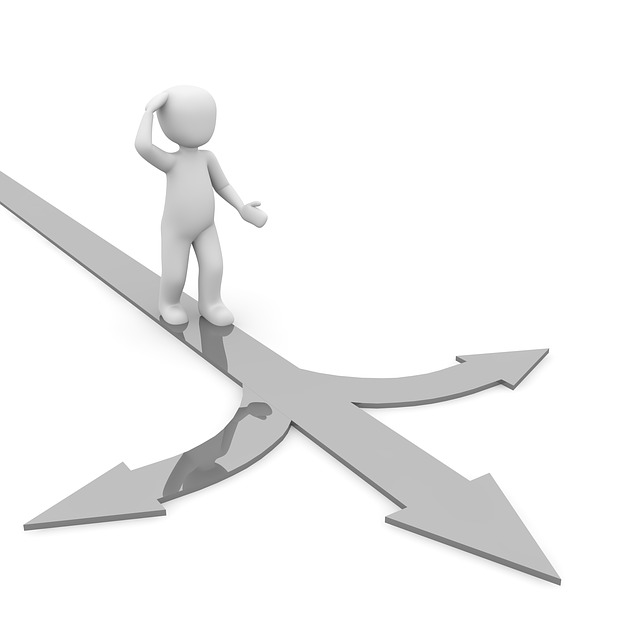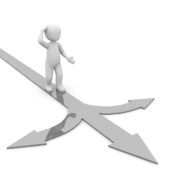The Best Advice For Someone Who Recently Turned 60. (P.S. The Best Is Yet To Come!)

It feels weird.
I’m only nine months from the twentieth anniversary of my 60th birthday. OMG, how did that happen?
I was recently asked on a forum what advice I would have for someone turning 60. Granted, they say advice is worth what you pay for it and it was a free forum, but since I’ve been there and done the 60-year-old thing many times over I felt reasonably qualified to riff on the topic.
It’s been a 19 1/3-year journey that has earned me a Master’s degree in Screw-Ups and a Ph.D. in Toe Stubbing. Which forces me to invoke (hide behind?) a fundamental success principle:
There are no failures – only research and development.
The late 50s and early 60s present us with some of the most critical and significant decisions we will make in our lives.
Here are three pieces of advice to those 60 years old or greater that have been part of my two-decade discovery journey:
1. Reject the conventional, decades-old cultural expectations for what lies ahead. By that, I mean viewing this next phase as a time to “wind down and come in for a landing.” At 60, we are typically carrying forward decades of “retirement indoctrination.” We may be part of the growing number who are unprepared financially for traditional retirement and fearful of the subtle condemnation that our culture lays on us if we don’t retire on or before that sacred number 65. Or we may be financially prepared for this anticipated nirvanic experience and convinced we have earned and are entitled to the self-indulgence it allows.
Either attitude has peril embedded in it.
The traditional leisure-based, “vocation-to-vacation” model for this post-mid-life or post-career phase of life still persists, with the help of a powerful but relatively unchanged financial services industry. It’s a model with 85-year-old legs, conceived for political reasons in 1935 and establishing an artificial finish line of 65 when the average American didn’t make it past 62.
Back then, facing 3–5 years of retirement, it made sense for your parents or grandparents to head to the beach or the golf course or Leisure World. Today, with us living 20–40 years longer, the model doesn’t fit. Thirty years of golf or bingo, bridge and boche ball, and the bulging waistline that accompanies it doesn’t make any sense.
My advice for this life juncture is to re-define retirement. Understand that you may be going forward with a mindset that is out of step with the world around you – not to mention your biology – if traditional retirement is the model for the balance of your life.
2. Take some time to reflect, reassess, and resurrect. Have you had questions like these bouncing around in your head? “Why am I here?” “Is this all there is?” “Is it too late to leave a footprint?” Or my favorite: “Is it true that the number of people attending my funeral will largely depend on the weather?”
If so, you are in a healthy spot. This is the perfect time to respond to those healthy questions and carve out some time – alone or with a supportive partner – to reflect on what your life has amounted to. But, with an eye on the positive.
We don’t reach 60 without doing a lot of things right. We got there consciously or unconsciously using some skills that were wired into us at conception.
There is also a chance that some of those natural, inborn skills or talents were “barnacled over” as you dedicated yourself to “provision” rather than “aspiration” and helped build someone else’s dream with your career.
It’s a good time, if you haven’t, to do some basic personality or strengths assessments (DISC, Strengthsfinders, Enneagram, etc.) to uncover or remind you of how you are wired up.
Chances are fairly high that you have been operating outside of your core talents and strengths. I certainly was, for the better part of 35 years chasing the 20th-century linear life model (Learn-Work-Retire). We all do it in the interests of providing and meeting cultural expectations defined for us by the “big Ps” in our lives – parents, peers, professors, preachers, politicians, and pundits.
I finally had to acknowledge that fact in my mid-sixties after leaving corporate life at 60, starting my own recruiting business, and realizing that my corporate experience – although successful by monetary and title standards – was never aligned with my core “uniqueness”, my “one and no other.”
I ignored the results of multiple assessments that were consistent in suggesting that I was at my best in a learning and teaching mode. My career in sales and marketing wasn’t ideally aligned with that. Yet I forged on, yielding to cultural expectations and rejecting the input of the assessments.
My venture into the recruiting business gradually moved me in the direction of these core talents and strengths to where now I feel that I am achieving the intersection of what I’m best equipped to do, what I’m good at, and a need that exists in the marketplace.
The Japanese called it “ikigai” – a reason for being. Or a reason to get up in the morning. I’m getting closer to “ikigai” day-by-day. But I had to shed some deep-seated cultural influences.
Based on experience and feedback from others, I’ve learned that the process of reflecting, assessing, acknowledging, and resurrecting latent talents and strengths can effectively put one on a path that will turn this extended period of life into the most productive, fulfilling, and purposeful time of your life.
3. Get serious about, and take control of your health. Let’s be honest – you probably haven’t done your body and brain a lot of favors up to this point. I say this with confidence because (1) I’m guilty; (2) the statistics on length of life and the level of extended morbidity and early frailty amongst our general population in this third age bear this out: (3) we let a culture that isn’t friendly to good health dictate our lifestyles.
Plan all you want for this period of extended longevity. It will be meaningless if you don’t feel good.
Dr. Mario Martinez, in his book “The Mindbody Self: How Longevity is Culturally Learned and the Causes of Health Are Inherited” makes an important point when he says:
“We inherit millennia of wisdom on how to achieve optimal health. Rather than mechanical products of our genes, we are the coauthors of their expression. With few exceptions, illnesses are only genetic propensities, not inevitable disruptions waiting their time to unfold.”
In other words, we start life with a birthright of good health. Our bodies are a collection of 35 trillion cells, or thereabouts, that have somehow been kludged together into this amazing 24×7 immune system that works its butt off to keep us healthy. That’s our inheritance.
Through our culturally-influenced lifestyles, we choose to screw that up.

Excuse my brashness, but collectively we are very healthcare illiterate. We don’t know how our bodies work and what they need to carry us through life optimally.
We succumb to a lifetime of seeking comfort and convenience and conformity. We view good health as the absence of sickness and have turned healthcare into a $35 copay experience with your doc when things skid off the tracks, within a healthcare system that only dispenses medical advice, not health advice.
Rather than adopting a lifestyle of “proactive prevention” we turn to a system designed to provide “reactive cure.”
For example, we know that over 60% of early death in our culture is due to an inappropriate diet. Yet, doctors receive no training in nutrition. So we are functioning within a healthcare system that doesn’t care much about what we eat. Or doesn’t seem to because you won’t get nutrition counseling in our “drug it or cut-it-out” system.
Couple that with a profit-driven food industry that doesn’t give a rip about our health, we are fighting challenging countervailing forces to maintain optimal health.
That’s why, regardless of age – and especially at 60 – it’s important to become the CEO of your health, become literate about how your body works at the cellular level, take charge, and change to habits that will support you with good health going forward.
It’s never too late to start. It’s always too early to quit.
The five top killers in our culture – heart disease, cancer, stroke, diabetes, dementia – have not changed in decades. These are all lifestyle diseases and all are preventable.
We have a “whole-life potential” benchmark already established for us. We know that the body is capable of lasting 122 years and 164 days because Jeanne Calment of Paris lived that long – the longest living human on record.
Yet, on average, we fall seriously short of that benchmark, achieving only 66% of it on average.
The gap is lifestyle.
I was heavily influenced, in my 60s, by two books that helped me deepen my commitment to protecting my health, although I have been a strong health advocate and avid exerciser for over four decades.
“Dare to Be 100” by Dr. Walter Bortz, semi-retired Stanford geriatric physician helped me understand why “there is no biological reason that I shouldn’t live to 100 or beyond” and what I can do to enhance my chances of getting there.
The other was “Younger Next Year: Live Strong, Fit and Sexy – Until You’re 80 and Beyond.” This perennial best-seller helped me understand how my body works at the cellular level and what those cells need to support me with good health.
Let me quote Dr. Henry Lodge, co-author:
“The simple fact is that we know perfectly well what to do. Some 70 percent of premature death and aging are lifestyle-related. Heart attacks, strokes, the common cancers, diabetes, most falls, fractures, and serious injuries, and many more illnesses are primarily caused by the way we live. If we had the will to do it, we could eliminate more than half of all disease in men and women over fifty. Not delay it, eliminate it.”
I’ll also leave you with this guideline, also from Dr. Lodge. It’s called “Harry’s Rules” and it is a simple, hard-hitting set of rules that will enable good health and successful aging.
Harry’s Rules
- Exercise six days a week for the rest of your life.
- Do serious aerobic exercise four days a week for the rest of your life.
- Do serious strength training, with weights, two days a week for the rest of your life.
- Spend less than you make.
- Quit eating crap!
- Care.
- Connect and commit.
Good luck on your journey. You are about to step into the most exciting, most exhilarating, most impactful, and fulfilling time of life.
If you so choose.
How are your 60s – or your post-60s – going? Let us know what you think about these three suggestions and PLEASE add to them. You can do that with a comment below or an email to gary@makeagingwork.com





Excellent advice, Gary! You are a gifted writer and I love the infusion of humor into your wisdom!
Thanks, Trish. Always good to hear from you. Your support helps spur me on!
Good notes and ideas. I was retired when the Department I worked for downsized. I had enough years in to get the pension, so just smiled and went home. I joined a field Naturalist group, started helping wildlife census in the local National Park, guided canoeing and hiking in the wilderness areas in my county, and we visited our kids across Canada. We joined a Seniors club locally and provincially. ,Took offices in the local Veteran’s Legion, and both had turns as secretary and President of the Provincial Seniors group.We were treated to a cruise of the southern Caribbean on our 50th Anniversary, and have taken another (Western ) with 18 family members, and camped across the States and Canada. There always seemed to be something to do, Probably because we were always busy during working years. The Covid has cut back on visiting, so more time on line, but with cases down now, am getting back in the wilderness a bit, and looking to get back to the lakes again. Only 81, so should have a bit more fun.
As always, Murray, thanks for being a reader and for your input. You set a standard for others to follow. I appreciate your demonstration of resilience, energy, and refusal to accept 81 as anything other than just another number.
Hi Gary, I very much enjoyed your article and its very timely. I turned 60 ten months ago and as I approach 61 I’m working hard on the next chapter. COVID has certainly altered the course of my river these past two 2 years, but at a broad level. I’m thankful for no immediate effects to my friends or family.
I’d like to learn more about Ikigai. I just completed a management training where we relied a lot on DISC assessment. I’m still digesting all the data provide from my report.
Would enjoy staying in touch
I appreciate your comments, Steve. Thanks for taking the time to comment. I am going to reach out to directly – I’d love to have a 1:1 conversation with you to hear more about what are thinking about for your life going forward.
Sarva, hello and thanks for your comment. Dosha is not a word I was familiar with – thanks for sharing this insight. We all struggle with lots of “doshas” in our western culture.
Hi Gary, really enjoyed the article and since I m turning 60 this year the advice is welcome
Thanks